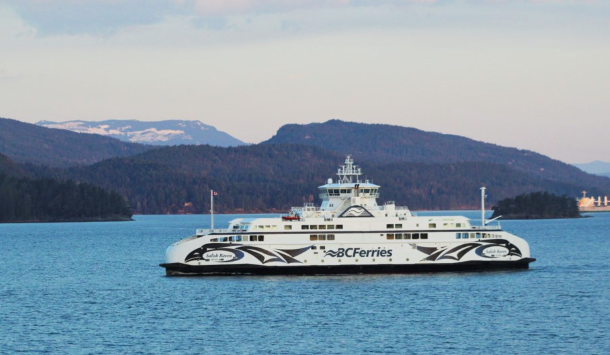A BC Ferries passenger on board the Queen of Alberni Nov. 2, reported that the ship hit a whale, but that’s yet to be confirmed.
The ship was travelling between Duke Point, in Nanaimo, and Tswawassen, when the passenger said they saw the collision.
However, none of the crew saw or felt anything, said Sheila Reynolds, with BC Ferries.
“Our crew quickly followed protocols to prevent possible harm and immediately reported the incident to our operations centre, Fisheries and Oceans Canada, local researchers and the Tsawwassen and Snuneymuxw First Nations,” she added.
No animals were located or identified.
And so far, researchers have been unable to locate or identify any injured animals.
“It is our information that the report involved a single animal, and that Fisheries and Oceans (Canada) continues to investigate,” Reynolds said.
According to BC Ferries there have been six suspected or confirmed marine mammal strikes in the last three years.
Reynolds added that BC Ferries is concerned about the incident and takes all such reports seriously.
The company has a policy for operating vessels in the presence of marine mammals and has been part of the BC Cetacean Sightings Network for 45 years. Crews on the bridge also have to take a mandatory tutorial.
Tsawwassen First Nation said online it was “deeply saddened,” to hear about the suspected incident.
“With several whale populations already in decline, any event that further endangers these species is of great concern to us,” the nation said on its website.
“Whales, in particular, hold tremendous cultural significance to Tsawwassen First Nation and other Indigenous communities in the region.”
TFN wants to have a more open relationship with BC Ferries and wants to work collaboratively on solutions.
Tsawwassen First Nation also encouraged BC Ferries to expand its pilot program using thermal technology for detecting whales.
However, there are no plans to do that, said Reynolds.
BC Ferries is facing financial pressure from rising operating costs and inflation and is focused on the “critical need” to update its fleet.
BC Ferries' new ships will be quieter, which will help the southern resident killer whale population, she noted.




